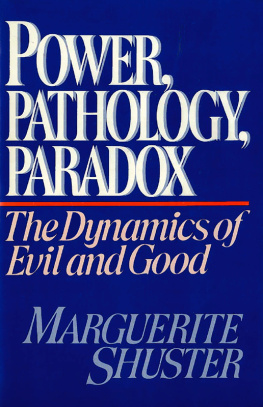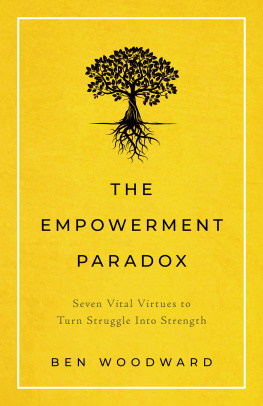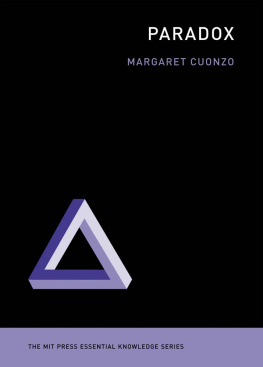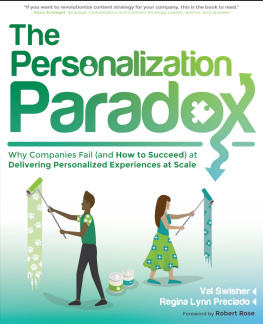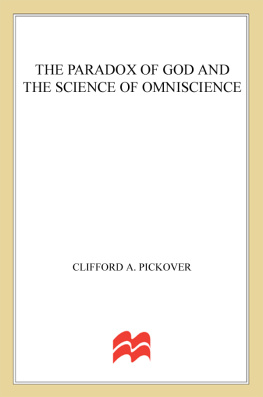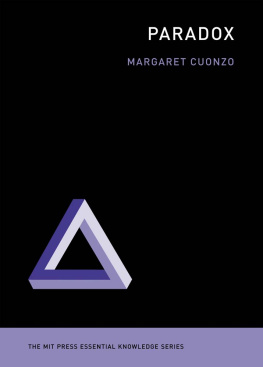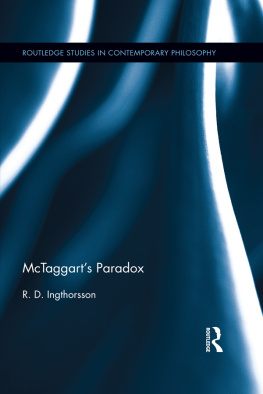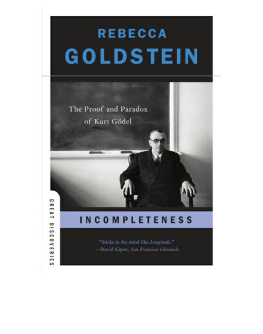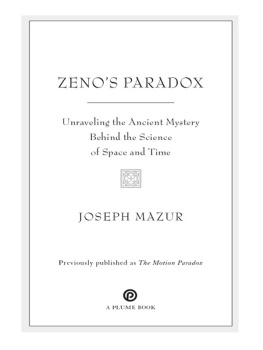NEW ESSAYS ON THE KNOWABILITY PARADOX
New Essays on the Knowability Paradox
Edited by
JOE SALERNO


Great Clarendon Street, Oxford ox2 6DP
Oxford University Press is a department of the University of Oxford. It furthers the Universitys objective of excellence in research, scholarship, and education by publishing worldwide in
Oxford New York
Auckland Cape Town Dar es Salaam Hong Kong Karachi
Kuala Lumpur Madrid Melbourne Mexico City Nairobi
New Delhi Shanghai Taipei Toronto
With offices in
Argentina Austria Brazil Chile Czech Republic France Greece
Guatemala Hungary Italy Japan Poland Portugal Singapore
South Korea Switzerland Thailand Turkey Ukraine Vietnam
Oxford is a registered trade mark of Oxford University Press
in the UK and in certain other countries
Published in the United States
by Oxford University Press Inc., New York
the several contributors 2009
The moral rights of the authors have been asserted
Database right Oxford University Press (maker)
First published 2009
All rights reserved. No part of this publication may be reproduced, stored in a retrieval system, or transmitted, in any form or by any means, without the prior permission in writing of Oxford University Press, or as expressly permitted by law, or under terms agreed with the appropriate reprographics rights organization. Enquiries concerning reproduction outside the scope of the above should be sent to the Rights Department, Oxford University Press, at the address above
You must not circulate this book in any other binding or cover
and you must impose the same condition on any acquirer
British Library Cataloguing in Publication Data
Data available
Library of Congress Cataloging in Publication Data
Data available
Typeset by Laserwords Private Limited, Chennai, India
Printed in Great Britain on acid-free paper by
Biddles Ltd., Kings Lynn, Norfolk
ISBN 9780199285495
1 3 5 7 9 10 8 6 4 2
for Rebecca
List of Contributors
Jc Beall is Professor of Philosophy at the University of Connecticut, and Arch Associate Fellow at the University of St Andrews.
Johan van Benthem is University Professor of Logic at the University of Amsterdam and Professor of Philosophy at Stanford University.
JosLuis Bermdez is Professor and Director of Philosophy, Neuroscience and Psychology at Washington University in Saint Louis.
Berit Brogaard is Research Fellow at the RSSS Philosophy Program and Centre for Consciousness at the Australian National University, and Associate Professor of Philosophy at the University of Missouri-Saint Louis.
Otvio Bueno is Professor of Philosophy at the University of Miami.
John Burgess is Professor of Philosophy at Princeton University.
Alonzo Church was Associate Professor of Mathematics (without tenure) at Princeton University when his contribution to this volume was written in 1945. He was Professor of Mathematics and Philosophy at Princeton, 19617, and then Professor of Philosophy and Mathematics at UCLA until he retired in 1990. Church died in 1995.
Sir Michael Dummett is Emeritus Professor at the University of Oxford. He was knighted for service to philosophy and racial justice.
Frederic B. Fitch was Sterling Professor Emeritus of Philosophy at Yale University when he died in 1987.
Michael Hand is Professor of Philosophy at Texas A&M University.
W. D. Hart is Professor of Philosophy at the University of Illinois at Chicago.
C. S. Jenkins is Arch Associate Fellow at the University of St Andrews, Associate Fellow of the Centre for Metaphysics and Mind at the University of Leeds, and Lecturer at the University of Nottingham.
Christoph Kelp has recently completed his doctoral dissertation at the University of Stirling.
Jonathan L. Kvanvig is Distinguished Professor of Philosophy at Baylor University.
Bernard Linsky is Professor of Philosophy at the University of Alberta.
Graham Priest is the Boyce Gibson Professor of Philosophy at the University of Melbourne, and Arch Professorial Fellow at the University of St Andrews.
Duncan Pritchard is Professor of Philosophy at the University of Edinburgh.
Stig Alstrup Rasmussen has formerly held positions at the Universities of Edinburgh and Copenhagen. He obtained his habilitation at the University of Copenhagen in 2004.
Greg Restall is Associate Professor of Philosophy at the University of Melbourne.
Joe Salerno is Research Fellow at the Australian National University and Associate Professor of Philosophy at Saint Louis University.
Neil Tennant is Humanities Distinguished Professor of Philosophy at the Ohio State University.
Timothy Williamson is the Wykeham Professor of Logic at the University of Oxford.
Acknowledgements
I am indebted to the contributors for their hard work and their patience with the editorial process. Each of them has furthered my understanding of the knowability proofs and other matters modal epistemic. I am extremely grateful to the graduate students that have served as my research assistants: Amy Broadway (Missouri), Heidi Lockwood (Yale), Julien Murzi (Sheffield), Jonathan Nelson (Saint Louis) and Nick Zavidiuk (Saint Louis). They helped me enormously with various aspects of the projectamong them, plundering archives, transcribing, compiling the bibliography, typesetting, and proof-reading for typographical and philosophical errors. Thanks also to my graduate students at Saint Louis University for stimulation, and to those grads at the Goethe University of Frankfurt who attended my seminar on the knowability paradox in May 2006. I thank the editor, Peter Momtchiloff, and supporting editors for their assistance and dedication to the project and to two anonymous Oxford University Press readers for their exceedingly helpful comments and suggestions. Many people have helped to improve the volume in one way or another, including Aldo Antonelli, Jc Beall, Scott Berman, Jim Bohman, Susan Brower-Toland, John Burgess, David Chalmers, Roy Cook, Judy Crane, Michael Della Rocca, Herbert Enderton, Saul Feferman, Bas van Fraassen, Anne-Sophie Gintzburger, John Greco, Nick Griffin, Michael Hand, Monte Johnson, John Kearns, Jon Kvanvig, Bernard Linsky, Heidi Lockwood, Ruth Barcan Marcus, Robert Meyer, Gualtiero Piccinini, Graham Priest, Krister Segerberg, Wilfried Sieg, Roy Sorensen, Kent Staley, Jim Stone, Eleonore Stump, Neil Tennant, Achille Varzi and Ted Vitali. Berit Brogaard deserves special mention for being a constant source of feedback. My daughter, Rebecca, has been an endless source of sleepless nights but also inspiration, both of which were needed to complete this project. It is to her that I dedicate the volume.
J.S.
Introduction
Joe Salerno
The Knowability Paradox
In his seminal paper A Logical Analysis of Some Value Concepts (1963; reprinted, of this volume), Frederic Fitch articulates an argument that threatens to collapse a number of modal epistemic distinctions. Most directly, it threatens to collapse the existence of fortuitous ignorance into the existence of necessary unknowability. For it shows that there is an unknown truth, only if there is a logically unknowable truth. Fitch called this Theorem 5, which usually is represented formally as follows:
Next page

